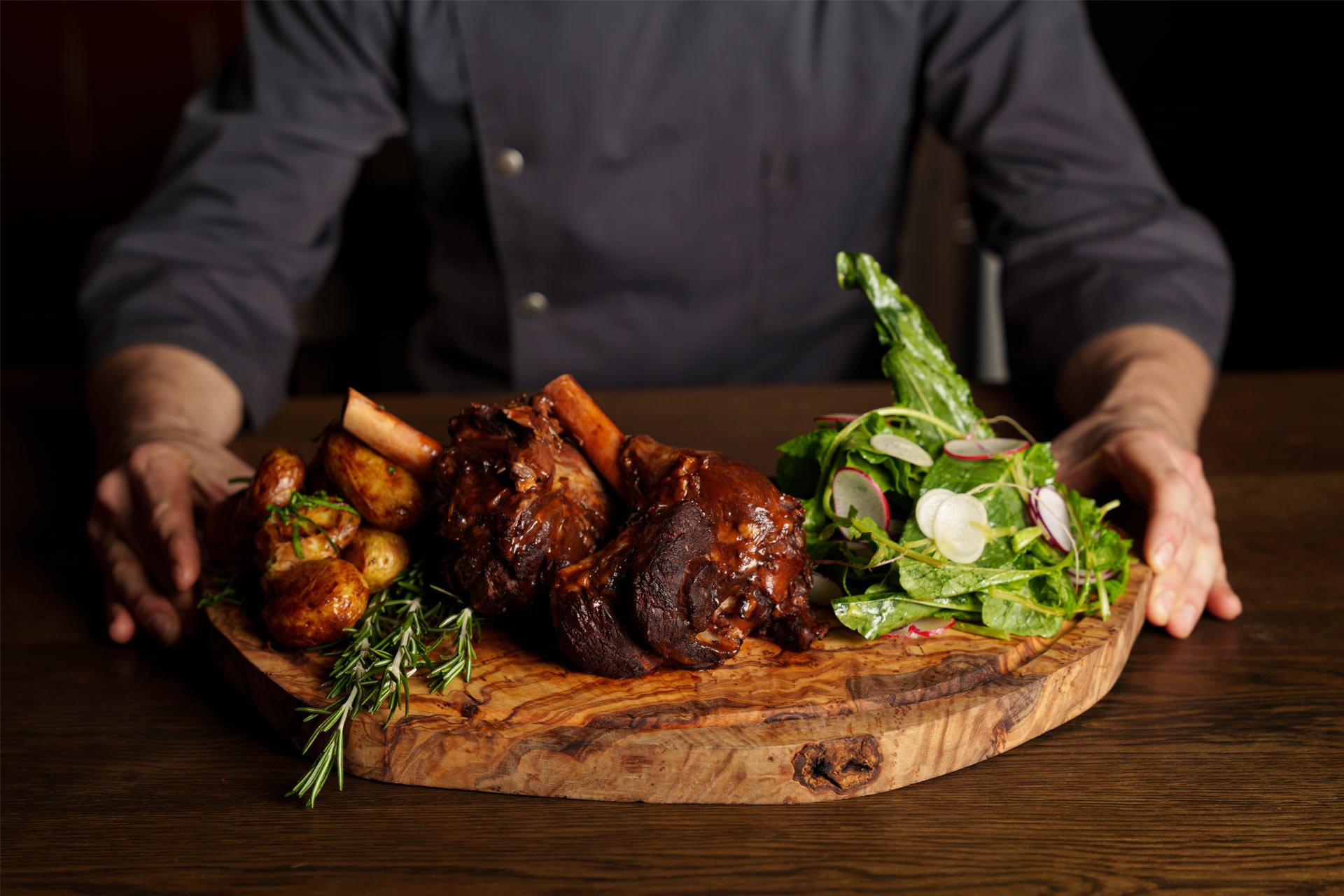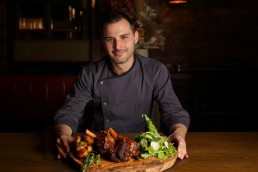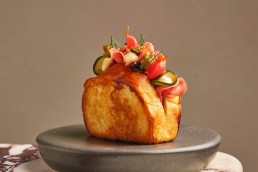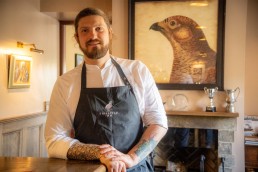Interview: Amador Parada on his culinary vision at Great Scotland Yard Hotel
Born and raised on the Spanish island of Majorca, Amador Parada has built a distinguished career spanning nearly 20 years in some of the world’s most prestigious kitchens. His culinary journey has taken him across continents, with formative experiences at venues such as The Mandrake Hotel, Hong Kong, One-O-One at The Park Tower Hotel, Evo in Barcelona and Michelin-starred establishments in Spain, Israel and the UK.
Parada’s approach to cooking is rooted in his Mediterranean heritage, yet enriched by his diverse international experience. Under the mentorship of Michelin-starred chefs, he has refined his craft, merging time-honoured techniques with bold, contemporary flavours. His culinary philosophy embraces sustainability, seasonality, and innovation, values that define his leadership at Great Scotland Yard Hotel in London.
As Executive Head Chef, Parada brings a visionary touch to every dining concept within the historic hotel. From meticulously curated seven-course tasting menus to elegant afternoon teas, his menus are inspired by the property’s storied past, once the headquarters of the Metropolitan Police.
Here, we chat with him about his culinary inspirations, approach to sustainability, and how his Mediterranean heritage continues to shape his culinary philosophy.
When did you first fall in love with cooking?
Growing up in Mallorca, food was always at the heart of everything: family, tradition and community. I didn’t fall in love with cooking through a grand moment, but through countless small ones – helping my parents, from growing produce to preparing meals, and seeing how food brought people together. It felt natural, instinctive. That connection between sea, earth, effort and emotion, that’s when I knew what I wanted to dedicate myself to.
How would you describe your culinary style?
It’s a blend of Mediterranean roots with a deep respect for locality and seasonality. I don’t chase trends or put my name on plates, I believe in collective expression. My style reflects thoughtful restraint and letting quality ingredients speak, honouring traditional techniques, always pushing for balance.
What is your culinary vision for the menu at Great Scotland Yard Hotel?
We’re building something that reflects London’s diversity, filtered through the lens of UK and Scandinavian seasonality. The vision is to offer a menu that evolves with the rhythm of nature, focused on ingredients with a story; local, sustainable, and sourced with intention. Every dish should feel like a conversation between our farmers, our kitchen team and our guests.
Do you have a favourite dish on the menu?
I wouldn’t say there’s one favourite. We’re in a property where F&B is very strong, with several distinct concepts. Depending on the day and the company, I might choose one dish or another.

What is the most important lesson you’ve learned during your career?
The most valuable thing I’ve learned is to listen: to ingredients, to the seasons and to my team. Leadership in the kitchen isn’t about being the loudest voice; it’s about creating a space where everyone brings their strengths and grows.
What are the biggest challenges faced by the hospitality sector at the moment, and how are you tackling them?
Staffing and sustainability are the most pressing challenges. We’re addressing both by investing deeply in team culture and education, offering real development opportunities, fair hours and fostering mutual respect. And with sustainability, we’re not just reducing waste, we’re designing menus around whole-product usage, local sourcing and long-term supplier relationships that reflect our values.
Which chefs have inspired you?
I’ve always been inspired by chefs who honour heritage while bringing a thoughtful, grounded approach to their work: Michel Bras, Santi Santamaria, Andoni Luis Aduriz and Ana Roš among them.
Beyond the big names, my greatest inspiration often comes from the unsung heroes: the local producers, village cooks, and fishermen who understand their craft more deeply than any textbook could explain. They are the real custodians of European food culture.
What is your approach to sustainability in your cooking?
Sustainability isn’t an add-on, it’s the foundation. We design dishes around seasonality, reduce waste through whole-product cooking, and work closely with suppliers and farmers who share our values. It’s also about human sustainability: creating a kitchen environment where people can thrive over time, not burn out.
What would you like your next project to be?
I’d love to return to Mallorca one day and open a culinary retreat, a space where guests can reconnect with the land and with food, cook with their hands, and understand the deeper rhythms of eating. A place without pretension, rooted in nature and community.
What is your favourite dish, and who cooks it?
Arroz brut. It’s messy, full of heart, and changes with the season. Every spoonful carries history, love, and a sense of place I always carry with me.
Related Posts
27 January 2026
Supper is Served: Issue 46
8 January 2026



